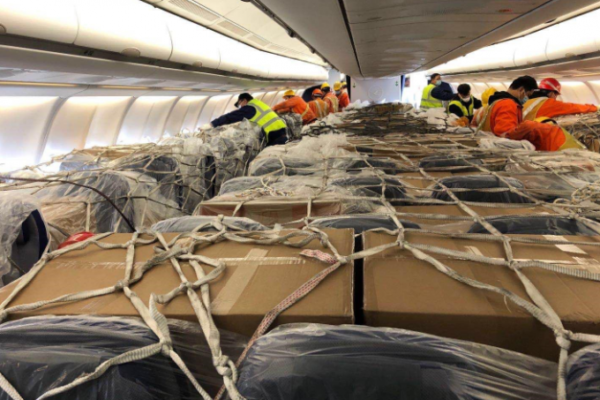Last week’s Pacific Islands Forum Economic Ministers Meeting (FEMM), held on 11 and 12 August in Vanuatu, provided a platform for discussion on key issues including COVID‑19 economic recovery, supply chain disruptions, social protection, and climate change, including climate financing. It was attended by Australia’s Assistant Treasurer Stephen Jones.
It might be expected that the plight of the aviation industry in our region should be high on the agenda. Unfortunately, difficult conversations about the management of national airlines were largely absent at the earlier Pacific Forum leaders meeting in Fiji in July.
Last year the Samoan government clipped the wings of Samoan Airways over concerns about its ongoing viability. Now, with international borders reopening, Samoa Airways has announced it will no longer operate long-haul flights to Brisbane, Sydney and Auckland – traditionally its primary sources of freight. Vanuatu is reportedly considering taking one of those planes, while Kiribati has also invested in its fleet, acquiring two aircraft. Meanwhile the region’s largest carrier, Fiji Airways (formerly Air Pacific), is caught up in controversy over changes in its ownership structure that caught many off-guard in mid-July.
Pacific Forum economic ministers attending the Vanuatu meeting have already said “the sense of urgency is very real.” Their discussions about “resilient economic recovery and stability” should include the role of regional aviation in achieving those goals.
Air Cargo Here in Australia
Qantas Freight announced today that it will increase its domestic fleet with six Airbus A321 freighters, which are expected to progressively arrive between early calendar year 2024 and mid-2026. They will replace the long-term fleet of five Boeing 737 freighters that are approaching the end of their economic life. Each A321 freighter can carry 23 tonnes of cargo, nine tonnes more than the older 737s, and are around 30% more fuel efficient per tonne of freight carried.
Qantas is also converting two widebody A330s to freighters, one of which will be used on the domestic network and will continue to supplement its fleet with wet-leased aircraft. Qantas Freight had a record performance in the first half of FY22 due to increased demand for e-commerce, higher international yields driven by supply chain disruption, and reduced capacity on passenger flights.
Global Airfreight
Over the past couple of years we have reported many times on the turbulence in the aviation industry, caused in most part by the Covid-19 Pandemic. This included the conversion of passenger aircraft into freighters – known in the industry as “preighters.”
Air cargo industry sources have played down the impact on capacity resulting from the end of cargo-in-cabin easements on 31 July. Allowing cargo to be flown in passenger cabins was an exceptional measure introduced by the European Aviation Safety Agency (EASA) during the Covid pandemic.
Passenger-to freighter-conversions (P2F) had supported the market, notably to accommodate increased PPE commodities. However, they have been phased-out as airlines recalled aircraft to service the return of passenger demand. Cargo can still be carried in the cabin on some routes, and airlines will be attempting to deploy their ‘preighters’ on these routes. But the market has been affected by high fuel prices, which have raised inflation and reduced consumer spending – a consequence of the crisis in Ukraine.
Meanwhile, although the market is in a bit of a seasonal lull, it is still expecting to hit a peak – although it won’t be as strong as those of the past couple of years.
As licensed Customs Brokers and International Freight Forwarders, Colless Young professionally handles all your consignments, both sea cargo and airfreight. We provide import and export shipping services, including customs and quarantine clearance, fumigation treatment, warehousing and trucking. We are based in Brisbane and offer a complete range of logistics facilities through all Australian ports and airports.

